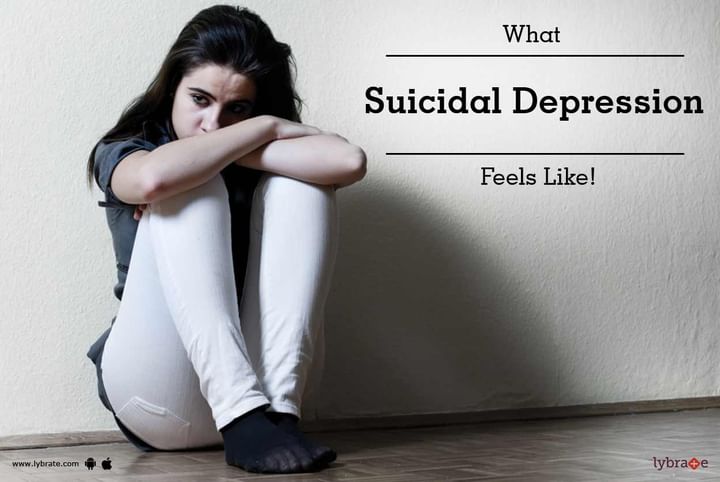What Suicidal Depression Feels Like!
Depression is an illness which has a direct impact on the brain. People feel that it’s just feeling down but it is more than that. It is a serious illness caused by changes in brain chemistry. There are other factors also that contribute to the onset of depression, including
-
Genetics,
-
Changes in hormone levels,
-
Difficult life circumstances.
Any of the above mentioned factors or combination can precipitate changes in brain chemistry and may lead to depression. Depression is a serious and a very common condition these days which may lead to suicide in extreme cases.
Signs of Depression:
-
Loss of pleasure in virtually all activities,
-
Feeling of fatigue or lack of energy,
-
Difficulty with concentration or memory,
-
An increase or decrease in appetite, with a corresponding change in weight.
-
Thoughts of suicide Depression & Suicide.
A major cause of suicide is mental illness, very commonly depression. People feeling suicidal are overwhelmed by painful emotions and see death as the only way out, losing sight of the fact that suicide is a permanent solution to a temporary state. Most people who succeed with living feel glad that they resist and are alive today. Suicidal thoughts may be fleeting or more frequent, passive or active. People who are in depress state often start preparing for death, such as giving away possessions or acquiring a gun and these are cause of great concern and should be taken very seriously.
How to judge if suicide is a possibility?
There may be some warning signs, though hard to predict but can be an area of concern:
-
Being depressed or signs of some mental disorders.
-
Talking about the loss of interest in living or not to be around.
-
Increased social isolation.
-
Mood swings very often.
-
Buying suicide materials.
-
Preoccupation with death.
While anyone can become suicidal, there are certain risk factors that make suicide more likely:
-
Previous suicide attempts.
-
Recent losses like loss of a relationship or job.
-
Cultural and religious beliefs supporting suicide.
-
Access to means of suicide.
How to help a depressed person?
-
Let the person know if you've noticed a change in their behaviour.
-
Spend time talking with the person about their experiences and let them know that you're there to listen without being judgmental.
-
Suggest the person see a doctor or health professional and/or help them to make an appointment.
-
Offer to go with the person to the doctor or health professional.
-
Help the person to find information about depression and anxiety from a website or library.
-
Encourage the person to try to get enough sleep, exercise and eat healthy food.
-
Discourage the person from using alcohol or other drugs to feel better.
-
Encourage friends and family members to invite the person out and keep in touch, but don't pressure the person to participate in activities.
-
Encourage the person to face their fears with support from their doctor/psychologist.
Remember that your loved one's depression isn't anyone's fault. You can't fix the person's depression — but your support and understanding can help.
In case you have a concern or query you can always consult an expert & get answers to your questions!



+1.svg)
